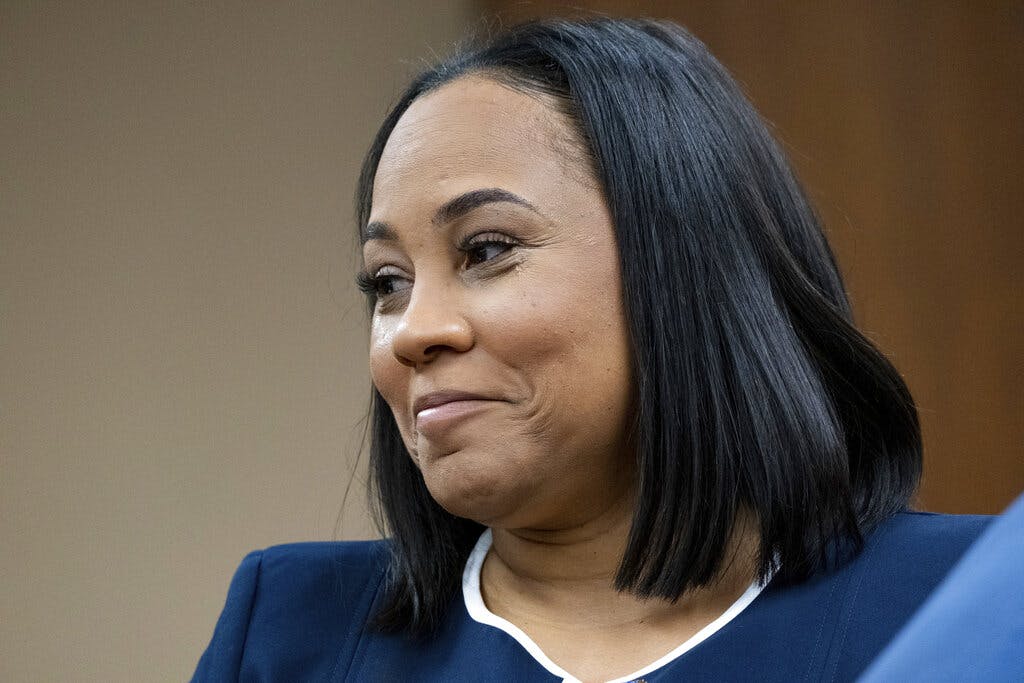Could a New Georgia Law Defeat Fani Willis Before She Tries Trump?
A complaint against the prosecutor is set to launch under a new law that lets the legislature oversee those who prosecute crimes, but is it constitutional?

Efforts to remove the district attorney of Fulton County, Fani Willis, from her post could soon shine a spotlight on an avant-garde law that grants power to remove prosecutors to lawmakers rather than voters or governors.
Georgia’s law launched on July 1 and will begin to field complaints on October 1, just months before President Trump and 18 other defendants will stand trial at a Fulton County courthouse. Ms. Willis has decried it as “racist” — now, she might have to back up that charge in court.
The push to oust Ms. Willis, who is prosecuting Mr. Trump and 18 others for alleged efforts in Georgia to overturn the 2020 election, is emerging as a sidebar to her stewardship of the case, still in its early days. Governor Kemp at a press conference called the impeachment of Ms. Willis “political theater that only inflames the emotions of the moment.”
The governor added that a special session devoted to removing Ms. Wilis “would ignore current Georgia law and directly interfere with the proceedings of a separate but equal branch of government.” He added that the “bottom line is that in the state of Georgia, as long as I’m governor, we’re going to follow the law and the Constitution, regardless of who[m] it helps or harms politically.”
In May at the Chatham County Sheriff’s Office, though, Mr. Kemp signed into law a measure called S.B. 92. The law creates an eight-member “Prosecuting Attorneys Oversight Commission.”
Three of those members are designated as “investigators,” and three are assigned to serve as a “hearing panel.” The commission possesses the “power to discipline, remove, and cause involuntary retirement of appointed or elected district attorneys or solicitors-general.” One state lawmaker, Steven Dixon, has already promised to file a complaint against Ms. Willis for her indictment of Mr. Trump.
The law mentions, as grounds for removal, “willful misconduct in office” as well as “willful and persistent failure to carry out statutory duties,” and “conduct prejudicial to the administration of justice which brings the office into disrepute.” Anyone disqualified is forbidden from being appointed or elected to a similar office in Georgia for 10 years.
The committee members are to be appointed by the governor, the lieutenant governor, and the speaker of Georgia’s House of Representatives, all Republicans. All three of those who have been appointed so far have been district attorneys, like Ms. Willis, suggesting that they could be empathetic toward her exercise of discretion.
When Mr. Kemp signed the bill, he explained that “people are finally fed up with local prosecutors that simply are not doing their job” and that “dangerous criminals getting off scot-free” was “raisin’ a lot of eyebrows.” The district attorney of DeKalb County, Sherry Boston, calls it “an assault on prosecutorial discretion and independence” and a “direct attack on the nature of our democratic process.”
The state senator who sponsored the bill, Randy Robertson, explains that “we see riots and we see people running all over the place saying the justice system isn’t fair and that people are able to do whatever they want.” Supporters of the legislation have cited lax enforcement of the state’s six week abortion ban as well as alleged prosecutorial misconduct as motivation. A lawsuit accuses one district attorney of fostering “bro culture” in her office
In response, prosecutors have turned into plaintiffs, with four district attorneys in the Peach Tree State filing a lawsuit at Fulton County — where Mr. Trump’s trial will be held — alleging that S.B. 92 is unconstitutional. Their case is being handled by the Public Legal project, a nonprofit whose legal director, Joshua Rosenthal, calls the law “an anti-democratic and unconstitutional intrusion into core powers of local prosecutors” that “must be halted.”
The constitutional challenge is multifaceted. It argues that the law violates the separation of powers by impinging on prosecutorial discretion. It also argues that the measure violates the First Amendment by “punishing prosecutors for articulating their prosecutorial philosophies.” The suit maintains that it is an improper delegation of power to the commission, which is granted “vague and broad authority.”
Finally, the prosecutors postulate that S.B. 92 violates the due process clauses of both the federal and Georgian Constitutions, which require, in the words of the Supreme Court, “fair notice of conduct that is forbidden or required” before the state can deprive someone — like Ms. Willis — of their elected office.

